This post is also available in:
 Persian
Persian  English
English
Canada universities
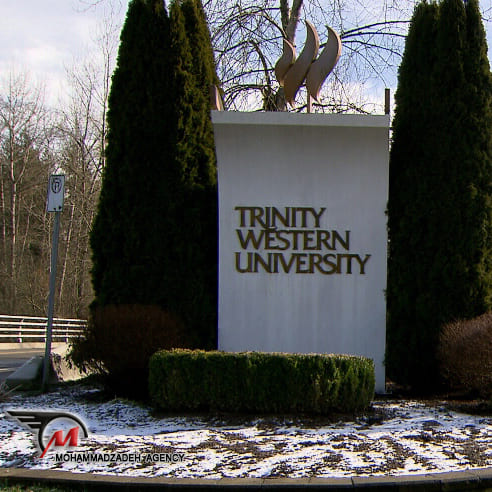
TRINITY WESTERN UNIVERSITY
Trinity Western University is a private, liberal arts and science institution. As a Christian university, a faith-based education is to be expected here. Consistently rated highly by students, it comprises two main faculties, and several professional and theological schools. With about 15 students per class, TWU students can expect a high degree of access to their teachers and a dynamic classroom setting. The philosophy also stresses making a positive difference in the lives of others; so expect a certain level of community engagement. There’s also the option of obtaining credit at TWU while studying abroad in places including New York, Hawaii, Northern Ireland, and Italy. Campus life isn’t just about ministry activities, but also art, music, and athletics. Participation in sports and student clubs is emphasized. TWU’s main campus in Langley, BC, about 45 minutes east of Vancouver. It also has satellite campuses in Bellingham, Washington, and Richmond, BC.
City: Langley
Undergraduate tuition fees:
$22,260
Graduate tuition fees:
$20,100 – $45,000
Signature programs:
Theology, Liberal Arts and Humanities
Algoma University
Algoma University is proud of its size: it is one of the smallest universities in the country. With just 65 seats per class, students here are regularly given the chance to collaborate with their professors on large research projects. That opportunity — which most students in Canada must wait for until their graduate studies — is entrenched in Algoma’s four year programs. This intimate learning environment is at the heart of the Algoma experience. The university has 12 academic departments, more than 30 programs, three research facilities and more than 50 full-time faculty members. The campus is beautifully situated and small enough to really get a sense of belonging. Established on the site of a former residential school, the university is committed to cross-cultural learning with First Nations communities. It’s no wonder the school attracts 22 percent of its cohort from the international community, from more than 30 countries.
City: Sault Ste. Marie
Undergraduate tuition fees:
$18,287
Signature programs
Business, Sciences, Humanities, Anishinaabemowin (Ojibwe language) (Ojibwe Language)


BROCK UNIVERSITY
Brock University is a comprehensive university of more than 19,000 students, a home to rich academic programs and world-class research. Located in Ontario’s scenic Niagara region, an hour’s drive from Toronto and 20 km from the U.S. border, Brock is one of a handful of universities in the world to be situated in a UNESCO Biosphere Reserve. The university offers more than 70 undergraduate and nearly 50 graduate degrees through seven academic faculties: Applied Health Sciences, Education, Humanities, Mathematics and Science, Social Sciences, Graduate Studies, and the Goodman School of Business. Brock is home to 13 Canada Research Chairs and is top-5 among all Ontario universities for the number of 3M national awards for teaching excellence.
City: St. Catharines
Undergraduate tuition fees:
$27,886
Graduate tuition fees:
$23,504
Signature programs
Medical Sciences, Accounting, Oenology and Viticulture, Sport Management
Carleton University
Carleton is located in the nation’s capital, Ottawa. With a staff of about 4,200, Carleton is one of the city’s largest employers and an integral part of the economic growth of the city. The institution was initially founded as a part-time school for soldiers in the Second World War. Unsurprisingly, Carleton’s interests were rooted in the needs of the country. Much of this is reflected in its programs: Carleton was the first university in Canada to establish a graduate degree in public administration, and the school holds the country’s oldest four year journalism program, as well as the oldest graduate international affairs program. International business and public affairs have always been well-developed and sought-after programs, as well as law. But don’t be misled: the school has always been strong in the sciences as well. Recently, the school has been expanding its efforts with new programs such as cognitive science and health sciences.
City: Ottawa
Undergraduate tuition fees:
$26,268 – $36,457
Graduate tuition fees:
$13,060 – $16,274
Signature programs
Journalism, International Business, Law, Public Affairs and Policy Management
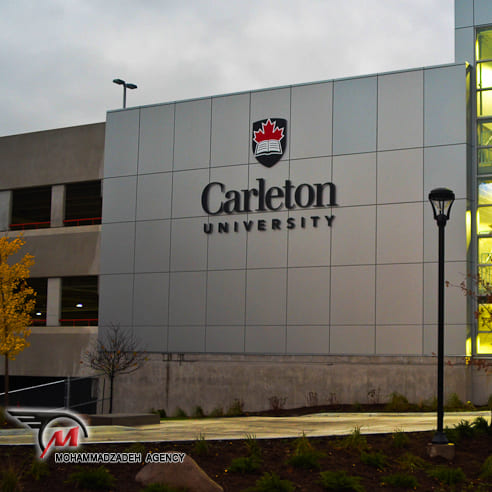
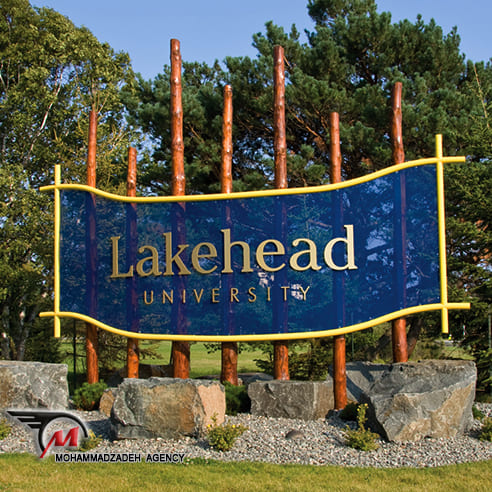
Lakehead University
Lakehead is primarily an undergraduate institution. Home to more than 8,500 full and part-time undergraduate and graduate students, the school offers a significant range of diploma and degree programs in 10 faculties. It is also home to the Northern Ontario School of Medicine, and the province’s most recently-accredited law school. Describing itself as, “a dynamic, modern, and highly learner centered school” this northern Ontario stalwart — located some hours north of Toronto — is known for small class sizes and professors that take the time to get to know each student. A variety of organizations, clubs, and services provide students with everything from counselling to orientation. Athletics and recreation are a big part of campus life and in addition to top-notch indoor facilities, it’s easy to put on your skates and play hockey on man-made Lake Tamblyn, right in the middle of the campus. People at Lakehead are known for their relaxed and inclusive spirit — but don’t be mistaken, with a smaller population of students, students who excel can really stand out.
City: Thunder Bay
Undergraduate tuition fees:
$25,000
Graduate tuition fees:
$15,334
Signature programs
Engineering, Education, Natural Resources Management
Laurentian University of Sudbury
Laurentian is located in Sudbury, traditionally perceived as a mining town. While the city no longer fits this stereotype, it is still known internationally and within Canada for its strengths in mineral exploration and mining. However, Laurentian University has a very wide breadth of offerings in other areas, with more than 94 undergraduate programs, 18 master’s programs, and Canada’s newest medical school. It is also a bilingual university, and as such 38 of its 175 programs are offered in French. This diverse programming creates a high quality educational experience. In addition, the school is committed to keeping class sizes smaller to allow for face-to-face time with professors. The student-to-faculty ratio is ranked as one of the best in the country, with an average class size of just 27 students.
City: Greater Sudbury
Undergraduate tuition fees:
$25,309 – $25,960
Graduate tuition fees:
$12,961 – $14,361
Signature programs
Environmental Studies, Health Promotion, Mining Engineering
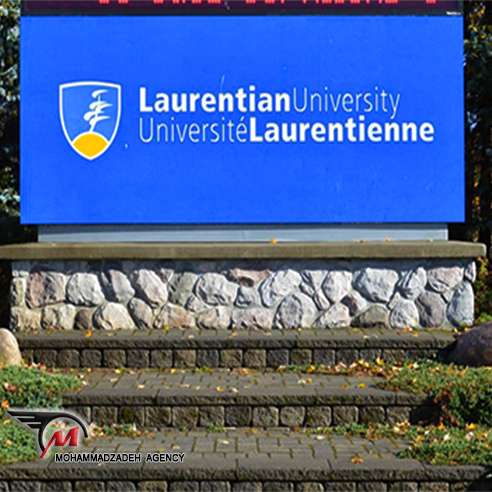
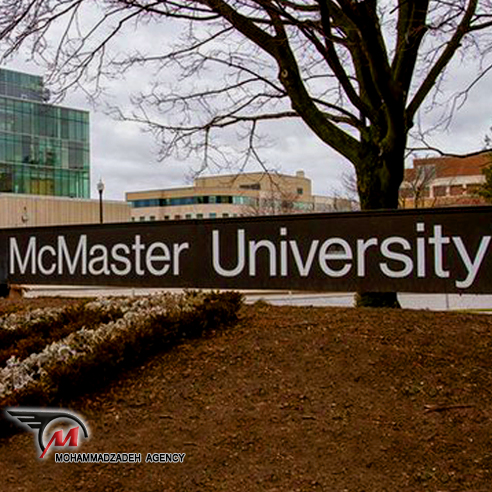
McMaster University
McMaster has an illustrious history — it opened in 1890 in Toronto. However it soon outgrew its original premises and moved to a much larger sprawling campus in the industrial town of Hamilton in the 1930s. To this day it retains much of its old-world charm. The grounds, for example are surrounded by the Royal Botanical Gardens and the campus is basically off-limits to cars. This gives its 30,000 undergraduate and graduate students room to wander and find quiet places to study. The school regularly scores in the top 100 globally and is a top 10 Canadian school. Its alumni include business leaders, Noble laureates, and notable government officials both in Canada and internationally. McMaster is also well-known for its innovative teaching methods. In particular, the self-directed, problem-based approach to learning — known as the inquiry approach — was developed at Mac and can continue to be found at institutions all over the world including Harvard.
City: Hamilton
Undergraduate tuition fees:
$29,139 – $33,852
Graduate tuition fees:
$6,037 – $17,096
Signature programs
Health Sciences, Medicine, Engineering, Social Sciences, MBA
NIPISSING UNIVERSITY
Nipissing began in the 1960s as an affiliate teacher’s college to Laurentian University in Sudbury. Now firmly at home in North Bay, Ontario, Nipissing is a fully-fledged university. To this day roughly 30 percent of its students attend the Schulich School of Education, serving true to its legacy with a strong emphasis on teacher education, public health, and nursing. It is primarily an undergraduate institution and has a population of around 5,000 full-time students. The school is proud of its welcoming environment, small, interactive classes, outstanding services for students, and some of the best student residences in the country. Most classes are comprised of fewer than 30 students, and are complemented by a lab component to make sure students get hands-on training and experience with the subject matter. As for its facilities and surroundings, the school has a state-of-the-art fitness center which is also used as a lab space for researchers who are studying within the physical health and education program.
City: North Bay
Undergraduate tuition fees:
$19,325
Graduate tuition fees:
$18,350
Signature programs
Criminology, Physical Health and Education, Social Welfare and Social Development, Geography
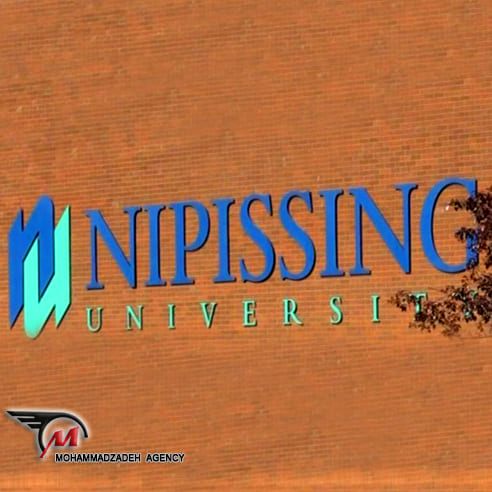
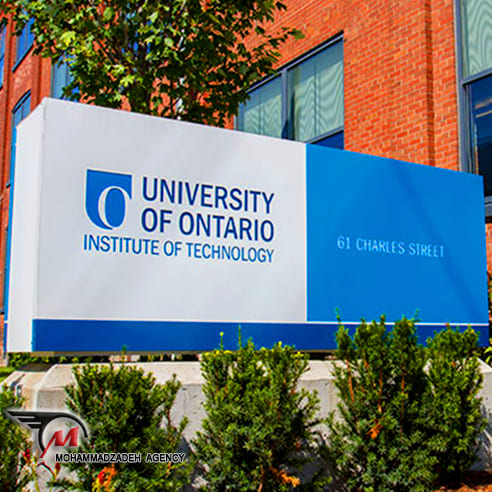
University of Ontario Institute of Technology
The University Of Ontario Institute Of Technology is one of the newest post-secondary schools in the country. Founded in 2002, UOIT was created with the strategic purpose to match a technological education to the market-driven needs of employers. To make sure everyone is plugged in, every student at UOIT is leased a laptop upon entry to the school. This technologically-enriched collaborative learning environment also stresses environmental innovation. Many of the campus buildings are heated with geothermal heat recovery systems and other green features are common. For students who are interested in athletics, the school has state-of-the-art facilities including the campus Wellness and Recreation center. UOIT is primarily a hands-on, polytechnic institution but it does offer opportunities to study more traditional subjects as well. For students who want a bit of both worlds, many of its diploma and certificate programs culminate in a degree. UOIT also offers many transfer opportunities to other institutions in the country.
City: Oshawa
Undergraduate tuition fees:
$28,346 – $31,469
Graduate tuition fees:
$19,166 – $25,074
Signature programs
Automotive Engineering, Criminology and Justice, Forensic Psychology, Health Physics, IT.
Queen’s University
Queen’s University is a Canadian icon. Located in Kingston Ontario, the school is known for its old world architecture, a vibrant student life, and outstanding programming and research. Neo-Gothic limestone study halls — most from the 19th century — dot this neighborhood full of students, artists, researchers and academics. Cafés and art galleries line the streets. Kingston is also defined by its live music scene and literary arts, both which form a significant part of the student experience. Queen’s University has six libraries and several museums and galleries, including the Agnes Etherington Art Centre. And yet this school is progressive in its approaches to disciplines including Computer Science and Engineering, Global Development, Biomedical Sciences, and Sustainable Energy Systems. Queen’s performs consistently well academically — according to Maclean’s magazine, it is in the top ten for Canadian universities in major subjects such as Computer Science, Math, Engineering, Nursing, Environmental Science, Education, and more.
City: Kingston
Undergraduate tuition fees:
$41,053 – $48,500
Graduate tuition fees:
$12,927
Signature programs
Business, Health Sciences, and Applied Arts.

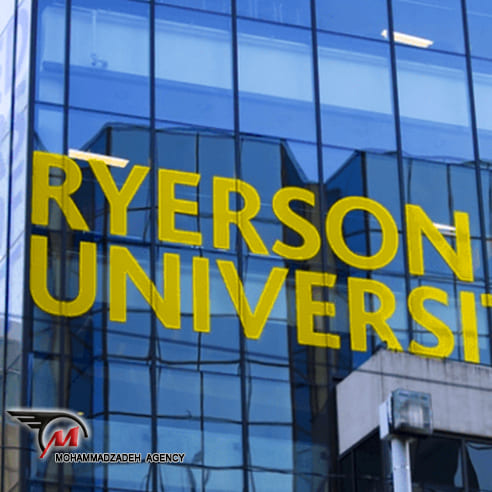
Ryerson University
Ryerson University has always maintained a polytechnic focus. But fairly recently the university began to reinvent itself in the realm of business incubation and innovation. Now, in addition to helping students get training that advances careers, the university is helping students actually create careers for others. For example, the DMZ (formerly the Digital Media Zone), a business incubator established in 2010, has helped accelerate more than 250 start-ups and projects, creating more than 2,000 jobs in the process. The RTA School of Media is among the country’s leading institutes for broadcasting and media production. These forward-thinking institutions are at the heart of the new vision Ryerson sees for itself. Ryerson is also a truly urban university, so don’t expect sprawling green grass and colonial buildings: the school is located in the middle of Toronto’s financial district. While utilitarian-looking, some of its facilities are stunning. The Mattamy Athletic Centre, for example, is a state-of-the-art fitness complex that houses an NHL-size hockey rink, multi-purpose court, gym equipment, studio space and much more.
City: Toronto
Undergraduate tuition fees:
$26,964 – $27,300
Graduate tuition fees:
$21,260 – $22,190
Signature programs
Biomedical Sciences and Biomedical Engineering, RTA School of Media, Urban Sustainability, Journalism, Aerospace Engineering
St. Jerome’s University
Founded in 1865, St. Jerome’s University is a public Roman Catholic undergraduate learning institution in Waterloo, Ontario. St. Jerome’s is federated with the University of Waterloo and enjoys all of the privileges of being a smaller campus in the context of a large university. Home to some 1,000 full and part-time undergraduate students, St. Jerome’s University offers a Bachelor of Arts or Bachelor of Mathematics degree through the University of Waterloo. The only degree granted exclusively by St. Jerome’s University is in Theology, the Master of Catholic Thought (MCT). As for its atmosphere, St. Jerome’s is a small, tight-knit community and classes reflect the intimate and inclusive atmosphere on campus. Teachers are open and accessible and students can enjoy an academic relationship that fosters discussion. St. Jerome’s University offers students the opportunity to become involved in helping the larger community and thus fulfilling one of the tenets of the Catholic religion. At St. Jerome’s University there is great emphasis on student experience and the development of social understanding outside of academic pursuit.
City: Waterloo
Undergraduate tuition fees:
$32,019
Graduate tuition fees:
$19,252
Signature programs
Sexuality, Marriage, & Family Studies, Human Sciences, History, Italian and French Studies, Medieval Studies, Religious Studies, Sociology & Legal Studies

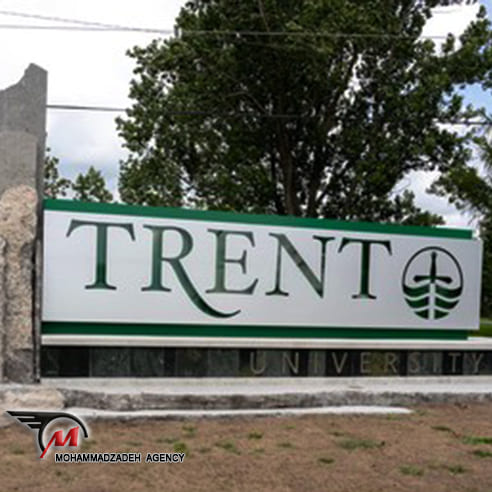
Trent University
As a primarily undergraduate institution, Trent attracts top talent and funding. Class sizes are small, which makes for lively discussions and better access to professors for feedback and guidance. Unsurprisingly, Trent University consistently receives positive feedback for its teaching and faculty-student interaction. This is one example of how the school has stayed true to its 1960s roots: it still maintains an active political life and considers no idea off-limits to public discussion. The school also has a diverse portfolio of science offerings for undergraduates and a small number of graduate studies. Featuring a large university campus but with fewer than 10,000 students, Trent has adopted a system similar to older universities such as Oxford and is split into different colleges. This way, students can appreciate a more intimate and social college experience with all of the trappings — athletics facilities for example — of a larger North American school.
City: Peterborough
Undergraduate tuition fees:
$20,721 – $22,454
Graduate tuition fees:
$13,590
Signature programs
Business Administration, Education, Cultural Studies, Information Systems
University of Guelph
The University of Guelph’s history is seldom mentioned without reference to its strong agricultural and veterinary roots — programs it continues to excel at — but it has also ranked first in Canada among comprehensive universities. Students looking for a one-of-a-kind experience in the food sciences, environmental studies, and community health will find a program rich with opportunities and ample funding. For students in the sciences this means state-of-the-art labs, and well-funded mentors. And yet the liberal arts students here aren’t forgotten: the writer-in-residence program and theater program bring in a consistent draw of artists, writers, and actors. The university teaches about 22,000 students, making it a mid-size university in a city that strikes a balance between a small town and a big city.
City: Guelph
Undergraduate tuition fees:
$10,703 – $26,730
Graduate tuition fees:
$5,650 – $15,081
Signature programs
Agricultural Science, Veterinary Medicine, Food Sciences, Biomedical Engineering, Plant and Animal Science.

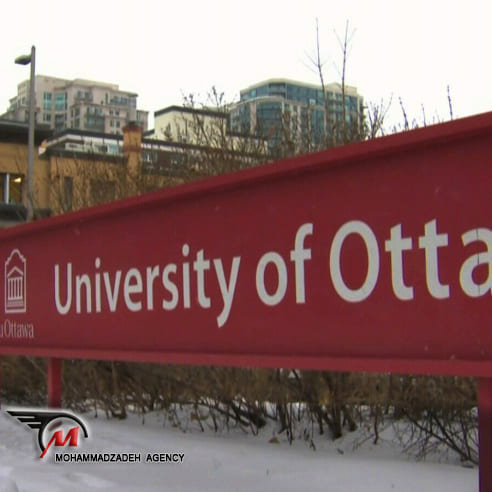
University of Ottawa
The University of Ottawa is the world’s largest bilingual (English-French) university, where students can choose to study in French, English or both. Located in the nation’s capital, the university offers ready access to major Canadian institutions. Its proximity to the Parliament of Canada, federal government departments and agencies, non-government and non-profit organizations, major libraries, research institutions and health centres adds to its character as a unique place to study. Founded in 1848, the University of Ottawa now has more than 42,000 students enrolled in nine faculties: Arts, Law, Education, Engineering, Medicine, Science, Health Sciences, Social Sciences and the Telfer School of Management.
City: Ottawa
Undergraduate tuition fees:
$36,161
Graduate tuition fees:
$16,334 – $27,519
Signature programs
Biomedical sciences, Law, Medicine, Management
UNIVERSITY OF TORONTO
With a global name for itself, the University of Toronto is a big-league player. It consistently ranks as one of the top 50 public universities in the world and its reputation as a research institution brings countless accolades. It is also a big institution, with more than 8,000 faculty and nearly 60,000 students over three campuses: in downtown Toronto (St. George campus), Mississauga, and Scarborough. U of T can boast an unparalleled array of research labs and resource centres — such as Canada’s largest library and its largest public health institute — as well as Olympic-class athletics facilities, and cultural hubs. Partly because of its size, the university is divided into smaller colleges. These colleges act as social and academic center for students, who may find these smaller communities make it easier to connect with others in such a big institution. The university’s popularity is reflected in an international student body comprised of students from over 150 countries. Its main campus location in downtown Toronto also makes it a compelling option for off-campus activities and culture.
City: Toronto
Undergraduate tuition fees:
$37,680 – $58,970
Graduate tuition fees:
$6,210 – $41,470
Signature programs
Architecture, Commerce, Medicine, Engineering, Education, Public Health
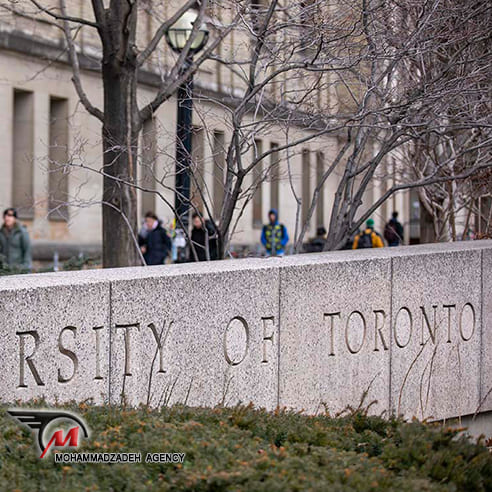
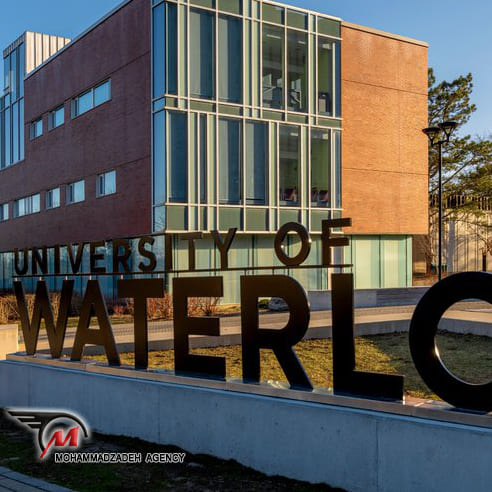
UNIVERSITY OF WATERLOO
The University of Waterloo is traditionally recognized as a science and engineering giant. It’s not just a think tank however; the school incubates and drives innovation in the Technology Triangle, a network of more than 1,000 tech companies in the area. Meanwhile, Waterloo has the largest co-op program in the world, with more than 19,000 students participating in more than 120 co-op programs. Its campuses are innovative, well-funded, and hands on, with a clear mission to become one of the world’s most innovative learning destinations. It also places a high importance on the role of women in Science, Technology, Engineering, and Mathematics (STEM) disciplines, with commitments to improving participation and employment of women. It also excels at athletics: The Waterloo Warriors are the university’s championship varsity team, consistently winning trophies and catapulting a good number of its graduates to Olympic podiums.
City: Waterloo
Undergraduate tuition fees:
$30,237 – $40,325
Graduate tuition fees:
$4,128 – $14,508
Signature programs
Statistics and Actuarial Science, Engineering, Architecture, Nanotechnology
University of Windsor
The city of Windsor sits directly across the river bank from the American city of Detroit, a location the University of Windsor takes full advantage of. For example, a Juris Doctor program and a Master of Social Work are offered in conjunction with the University of Detroit Mercy. This enables the school to connect across the border and work together on industrial and technological projects. The Centre for Engineering Innovation complements engineering with business and entrepreneurism, a clear sign that the school is helping to work on and diversify the area’s traditional automotive past. Far from being just a business, engineering or trades school, however, the campus also excels in architecture, physics, visual arts, history, social work, and film production. With the huge assortment of programs spanning nine faculties, this comprehensive university also offers executive and professional education programs attainable to working professionals as well as a number of diploma and certification courses.
City: Windsor
Undergraduate tuition fees:
$25,800 – $27,150
Graduate tuition fees:
$24,255
Signature programs
Architecture, Engineering, Forensics, Business, Film, Interdisciplinary Studies
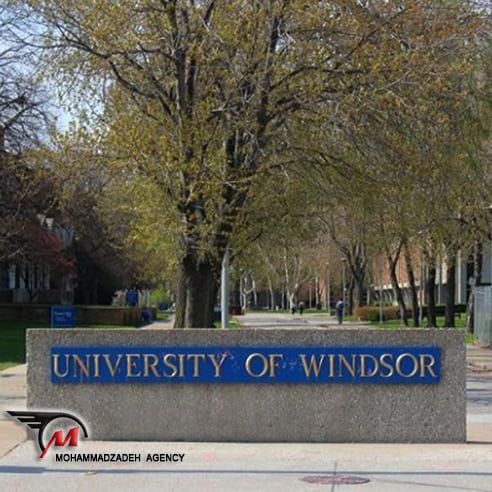
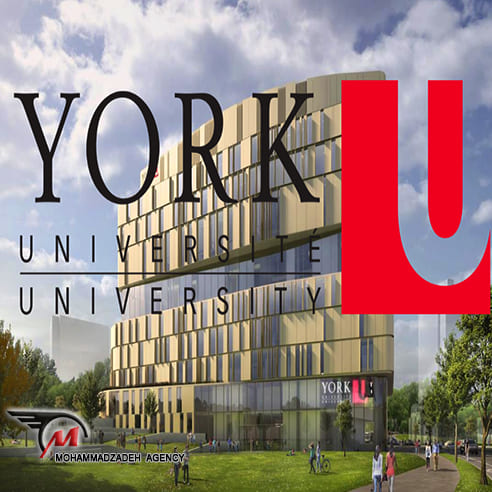
YORK UNIVERSITY
York University is located north of Toronto and is Canada’s third-largest public university with nearly 60,000 students. With more than 5,000 courses spread across 11 faculties and schools, there is something for nearly everyone at York. But this variety doesn’t sacrifice quality. The school is also regarded highly with respect to its Business, Engineering, and Law programs, which are considered among the best in the country. The school maintains state-of-the-art facilities and resources: its four libraries require 150 staff overseeing more than two million printed volumes and digital media holdings. Students at York University also benefit from no fixed tuition fees, which allow them to study and graduate at their own pace. Despite the school’s impressive size, it is separated into smaller colleges which maintain their own governance, clubs, and entertainment. York is also known for its vibrant social and political landscape
City: Toronto
Undergraduate tuition fees:
$31,496
Graduate tuition fees:
$12,550
Signature programs
Business, Law, Environmental Studies, Liberal Arts, Engineering

Leave A Comment